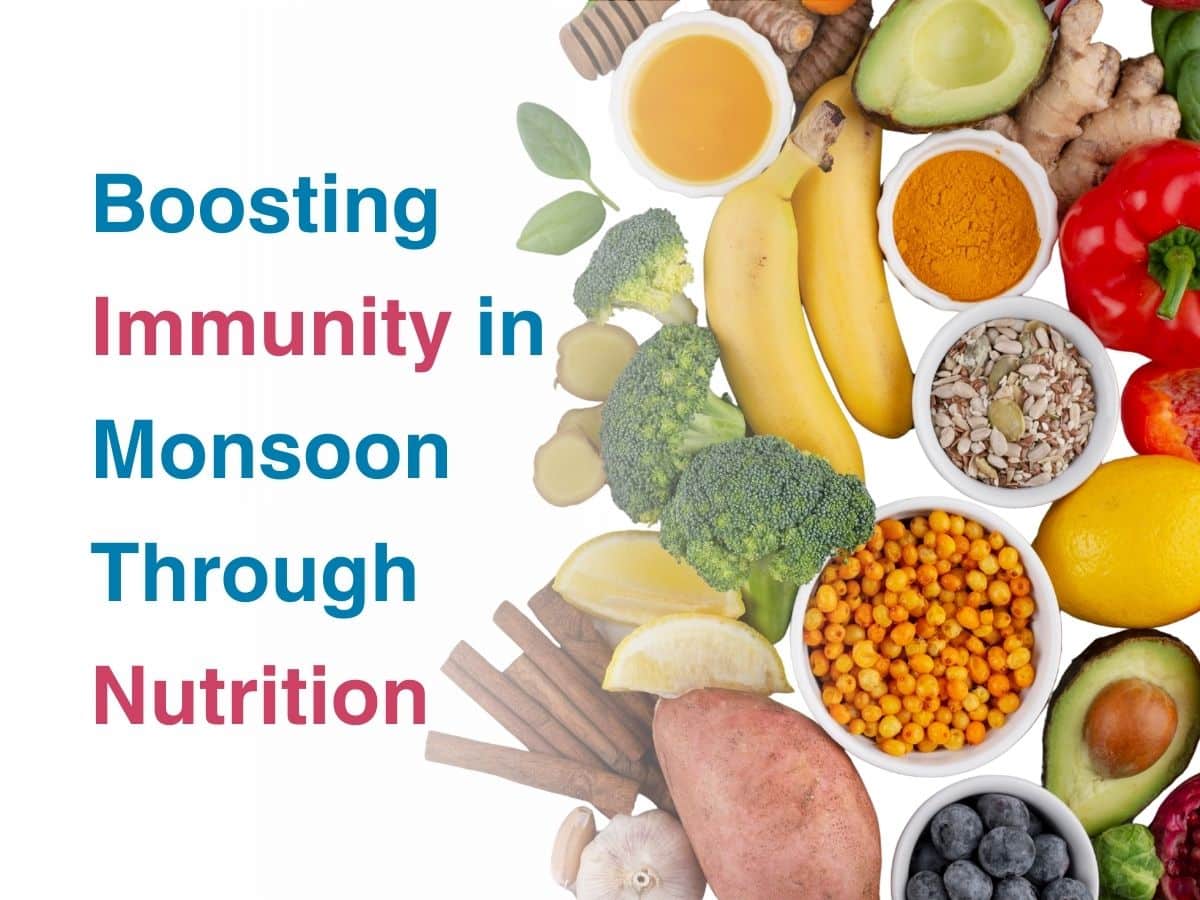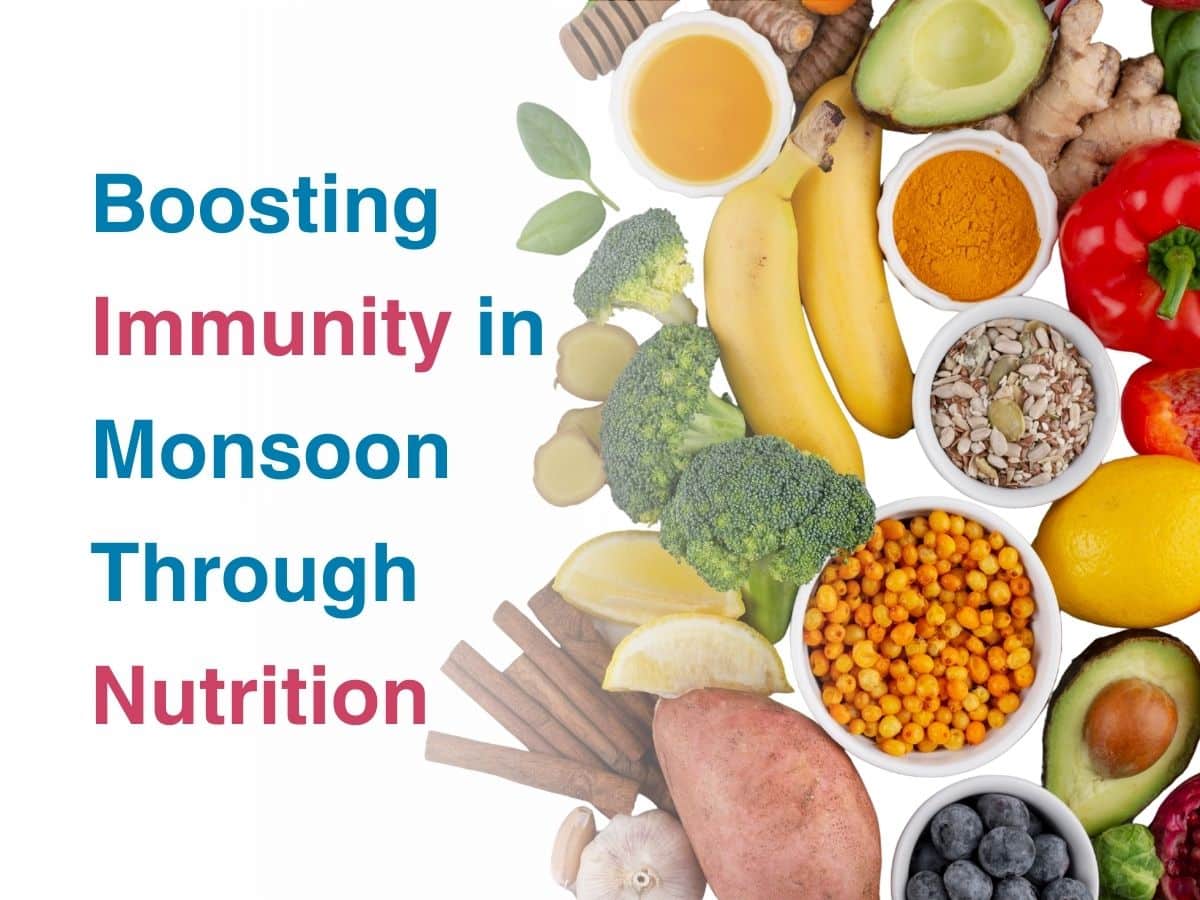
Boosting Immunity in Monsoon Through Nutrition
 Children have an uncanny way of catching infections before anyone else in the family, usually after a cheerful splash in puddles on their way back from school, or by being in the vicinity of friends who are sneezing or coughing and parents often worry about how to balance their little one’s love for pakoras (and other no so healthy foods) with the need for stronger immunity. So, let us look at monsoon superfoods for children in this blog.
Children have an uncanny way of catching infections before anyone else in the family, usually after a cheerful splash in puddles on their way back from school, or by being in the vicinity of friends who are sneezing or coughing and parents often worry about how to balance their little one’s love for pakoras (and other no so healthy foods) with the need for stronger immunity. So, let us look at monsoon superfoods for children in this blog.
Probiotics And Gut Health In Immunity-
Many people overlook the fact that a strong gut equals strong immunity, yet doctors keep repeating that the gut is almost like the command centre of the immune system. During monsoon when water contamination and stomach upsets become common, probiotics quietly become saviours – and they can be included in the form of plain curd with a drizzle of honey, a glass of chaas spiced with roasted jeera, or fermented staples like dosa and idli that carry friendly bacteria. Gastroenterologists say that “curd in monsoon is less about cooling and more about stabilising,” which perfectly sums up how probiotics not only balance digestion but also help the body absorb nutrients better, ensuring that the immune army inside us doesn’t run out of ammunition.
Role Of Zinc In Immune System Function-
Zinc plays a key role in producing immune cells and speeding up wound healing. Indians often fall short of zinc due to diets heavy on refined grains, which is why adding pumpkin seeds to evening snacks, sprouted chana to breakfast, or even zinc-rich seafood in coastal regions can make a world of difference. Paediatricians explain to worried mothers that zinc deficiency is often the hidden reason why children keep catching coughs and colds, proving that sometimes it’s the smallest nutrients that hold the biggest keys to immunity.
Spices That Fight Infections-
The beauty of Indian food lies in its spices and while we often think of them as flavouring agents, the truth is they were once chosen for their medicinal powers, which shine even brighter in monsoon when infections spread faster. Excellent examples include black pepper, which helps unclog airways, cinnamon that fights against bacteria, cardamom that soothes digestion and cloves which ease throat pain, while turmeric continues to be the undisputed hero – with its curcumin content acting like nature’s potent anti-inflammatory medicine.
Best Supplements To Improve Immunity-
While most nutritionists would still urge us to get our vitamins and minerals from food, the reality of modern life, coupled with the stress of fluctuating weather in monsoon, means that supplements sometimes step in as handy allies. Vitamin C tablets for those prone to recurrent colds, zinc for children with weak resistance, or even Ayurvedic options like giloy and ashwagandha that are slowly finding recognition in mainstream health can become valuable allies in good health— but they CANNOT replace good food. They provide the cushion your body may need when life, weather and diet together put immunity under strain.
Conclusion
The rains may wash the streets clean and bring us cool relief from summer, but they also carry along a shadow of infections and fatigue, which is why nutrition remains our strongest ally. Whether it is sipping a steaming cup of tulsi tea, eating guava slices that burst with vitamin C, sprinkling spices into curries not just for taste but for protection, or choosing probiotics and zinc-rich foods to keep our bodies resilient, every choice we make at the dining table or in lunch boxes during the monsoon shapes how we experience the season. When immunity is quietly strengthened, meal by meal, the rains no longer feel like a challenge but like an invitation to slow down, sip, savour and stay strong.






